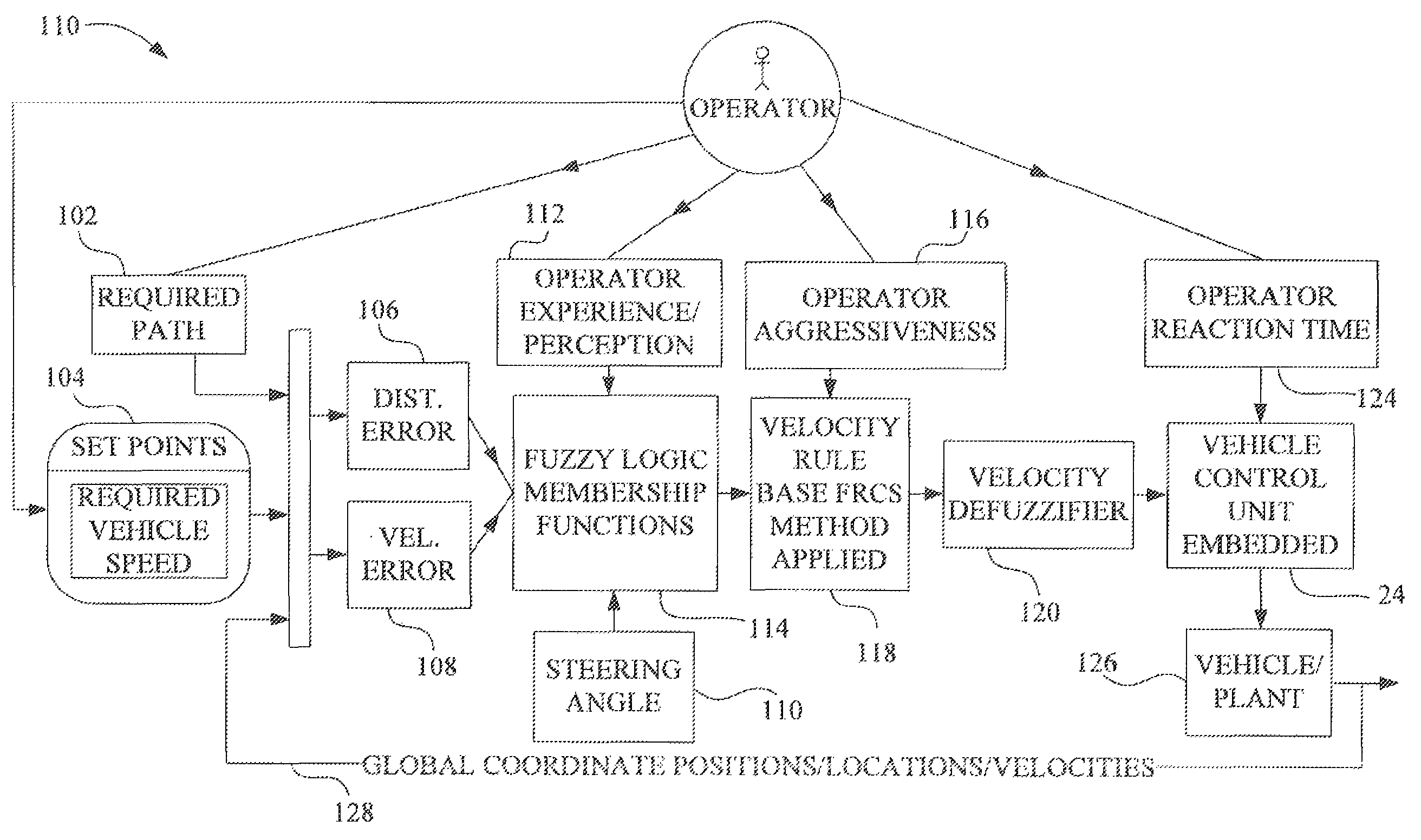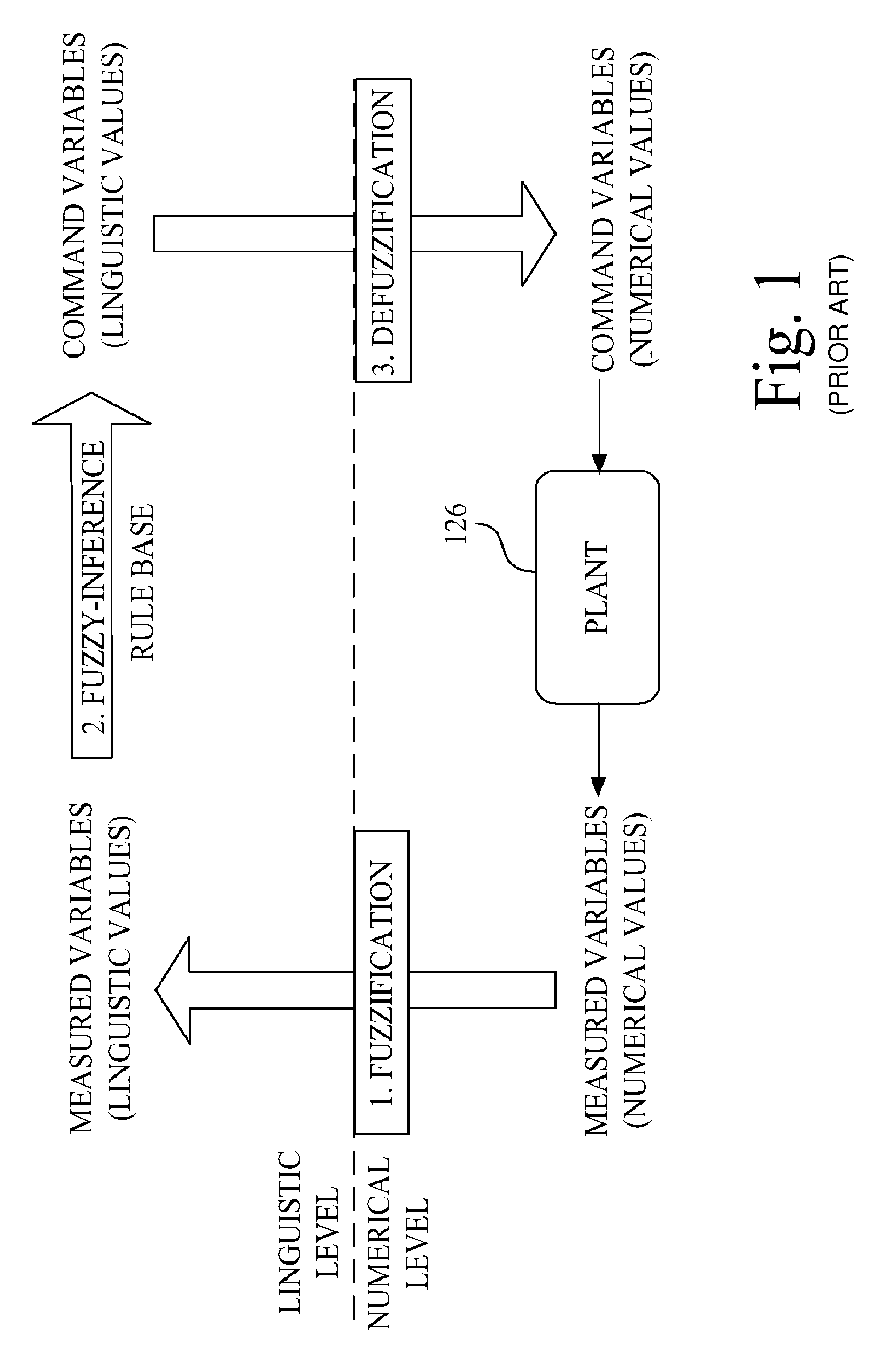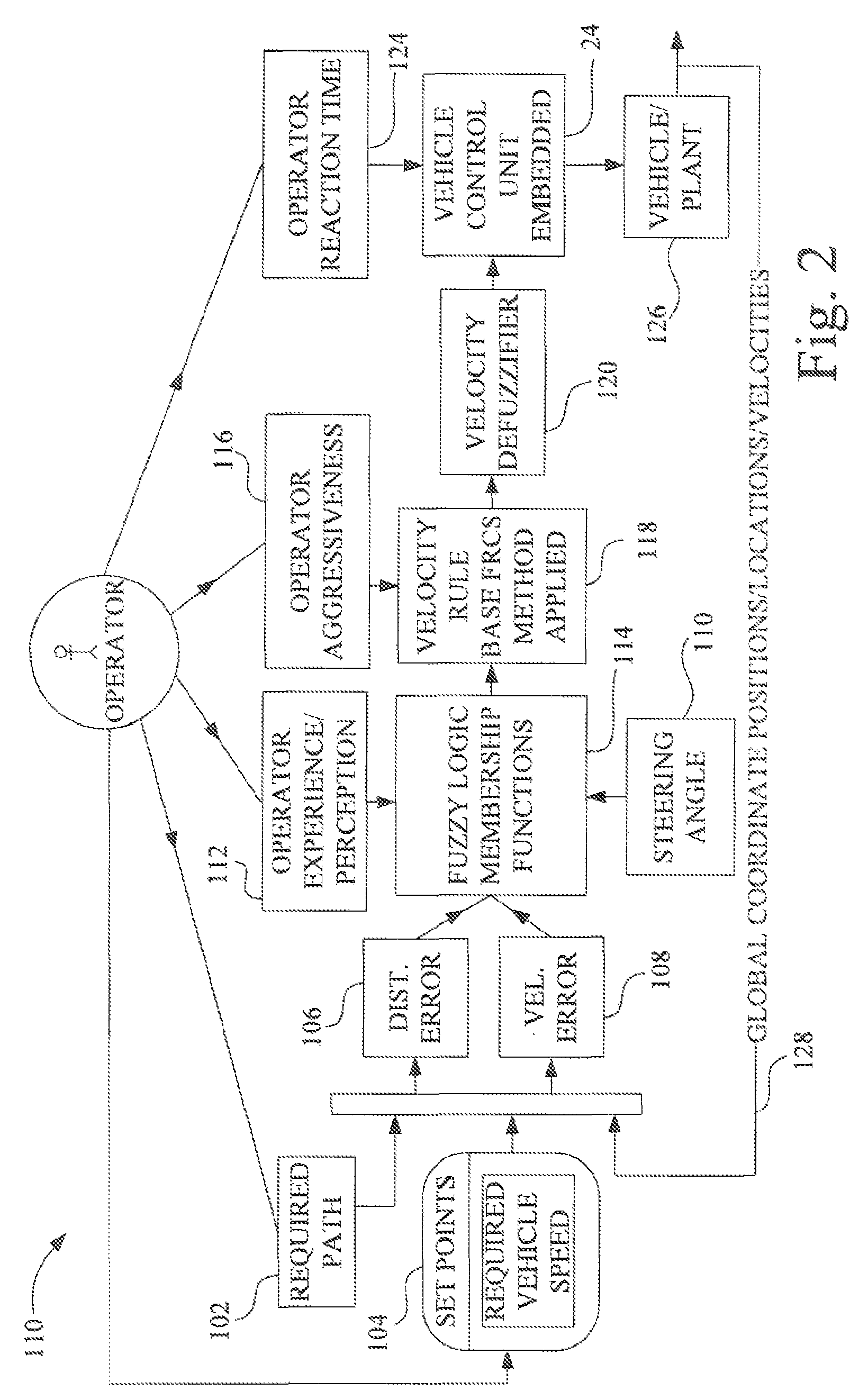Human perception model for speed control performance
a human perception model and speed control technology, applied in the field of speed control, can solve the problems of not being able to pilot a similar aircraft, agricultural machinery has become more expensive and complex to operate, and human machine control has been limited to open-ended operation
- Summary
- Abstract
- Description
- Claims
- Application Information
AI Technical Summary
Benefits of technology
Problems solved by technology
Method used
Image
Examples
Embodiment Construction
[0018]Referring now to the drawings, and more particularly to FIGS. 1 and 2, there are shown schematic illustrations of an approach used in an embodiment of a method of the present invention. The goal is to approximate human operator performance characteristics, which is undertaken by the use of a fuzzy logic controller structure. The design of the virtual operator proceeds in the following sequence and includes the fuzzification of the input variables, the application of the variables to a fuzzy inference and rule base construction and the defuzzification of the output variables. The fuzzification step converts control inputs into a linguistic format using membership functions. The membership functions are based on the outputs from an error interpreter. The input variables to the model include several performance related measurable items. To reduce computational effort, linear approximations are implemented. A fuzzy membership function for the various linguistic variables are chose...
PUM
 Login to View More
Login to View More Abstract
Description
Claims
Application Information
 Login to View More
Login to View More - R&D
- Intellectual Property
- Life Sciences
- Materials
- Tech Scout
- Unparalleled Data Quality
- Higher Quality Content
- 60% Fewer Hallucinations
Browse by: Latest US Patents, China's latest patents, Technical Efficacy Thesaurus, Application Domain, Technology Topic, Popular Technical Reports.
© 2025 PatSnap. All rights reserved.Legal|Privacy policy|Modern Slavery Act Transparency Statement|Sitemap|About US| Contact US: help@patsnap.com



